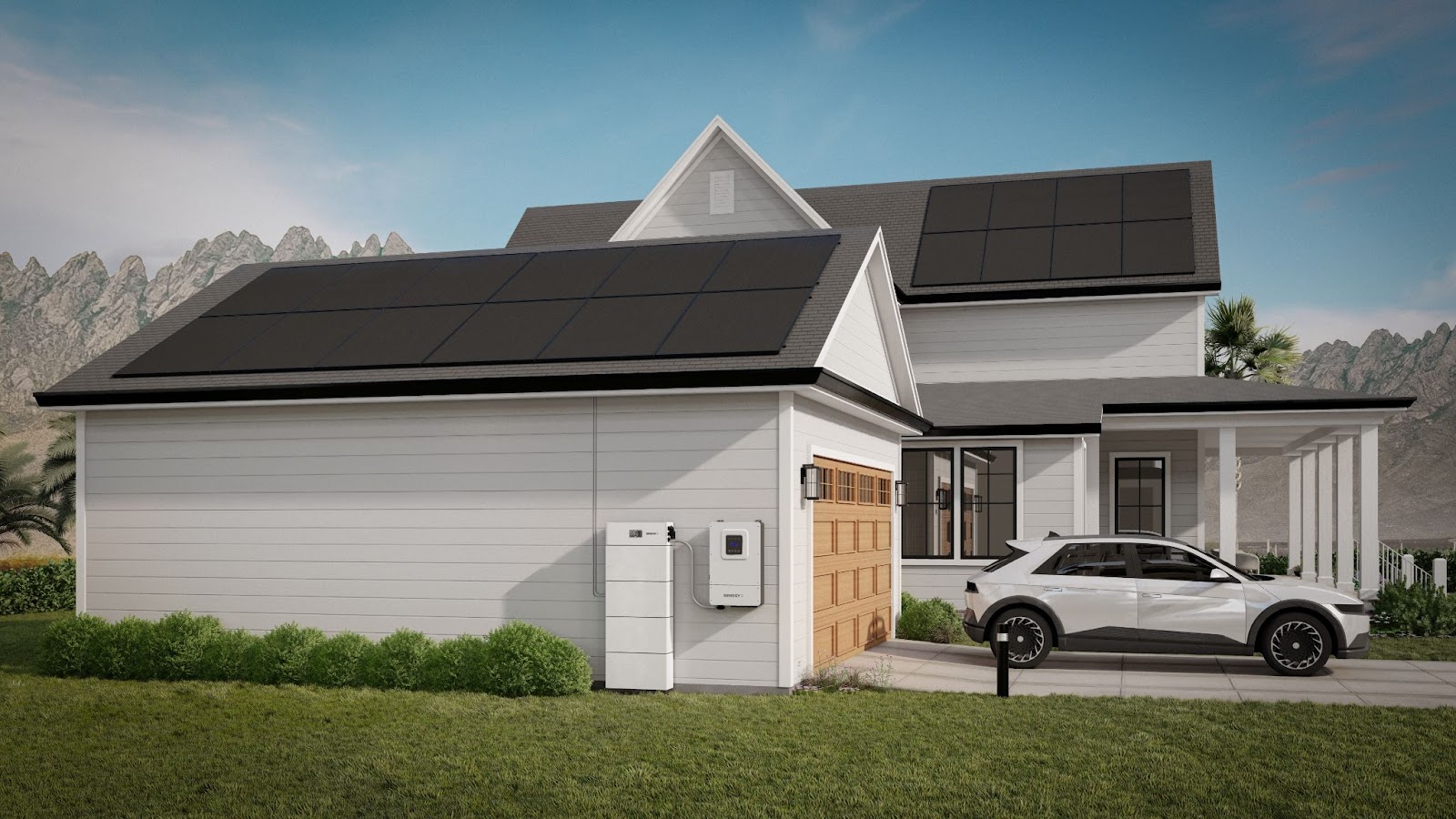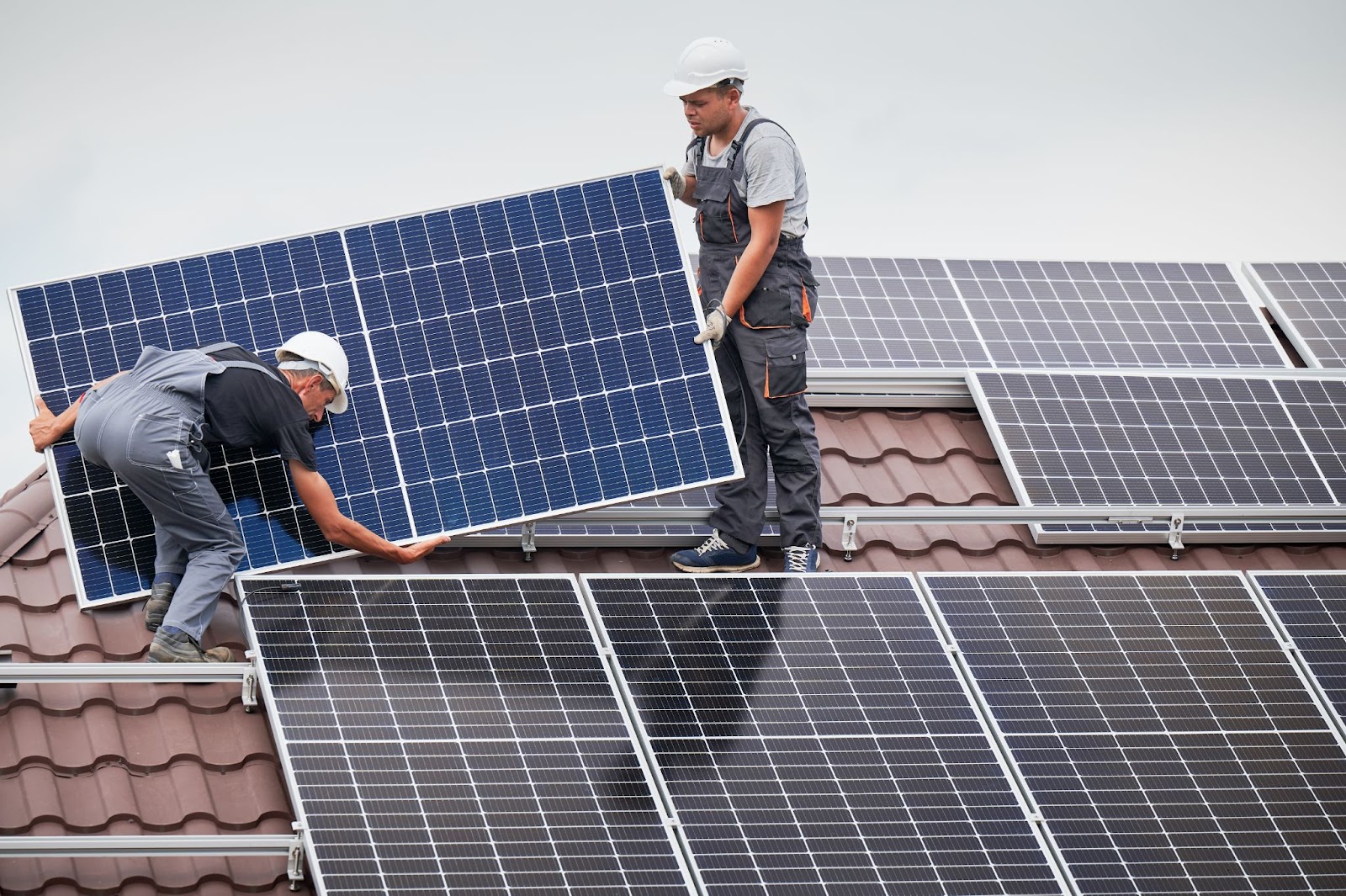Understanding the Advantages of Solar Energy

Now that sustainability is more than just a buzzword, solar energy is growing increasingly popular. With the sun serving as the Earth's most bountiful and consistent energy source, it's no wonder that more and more people are considering switching to solar power as a legitimate, eco-friendly alternative to traditional energy sources like coal.
Many people seeking direct and cost-effective solutions are switching to solar energy for its environmental and financial advantages. If anything, solar energy proves that green living doesn't have to come at a premium.
However, like any significant investment, switching to solar energy comes with its pros and cons. Here, we'll delve into every aspect of solar energy—from how it works and its numerous advantages to its potential downsides.
How Does Solar Energy Work?
As you may already know, solar energy harnesses the power of the sun's light, also known as solar radiation, to generate electricity or other forms of energy. Although the amount of sunlight reaching any particular spot on Earth can vary, solar technologies capture and convert this solar radiation into usable energy to fuel your appliances, gadgets, and everything else in your home.
Two primary technologies make this possible: photovoltaics (PV) and concentrating solar-thermal power (CSP). However, most people are familiar with photovoltaic technology, commonly seen in solar panels.
When sunlight hits a solar panel, the photovoltaic cells absorb the energy. This absorbed energy excites electrical charges in the cells, causing them to move and generate an electric current, turning the sun's rays into usable electricity.
The Pros and Cons of Solar Energy
Solar panels are an investment, and as with any significant investment, it's a good idea to weigh the good with the bad. Solar energy has clear benefits, especially when it comes to energy savings and environmental impact. However, there are some drawbacks to consider. Learn more about the pros and cons of solar energy below.
Advantages of Solar Energy
Solar energy brings a wealth of benefits that can contribute to a sustainable, eco-friendly lifestyle. From reducing your carbon footprint to lowering your electricity bills, the advantages are abundant. Here are just a few of the benefits of switching to solar energy:
Sustainable Energy
One of the biggest draws of solar energy is its renewability. Unlike fossil fuels, which are finite and depleting, the sun is a consistent and boundless source of energy. As long as the sun shines, we'll have access to solar power.
Reduced Electricity Bills
Switching to solar energy can result in significant savings on your electricity bills. Solar panels can generate excess electricity, which can be stored or even sold back to the grid in some cases, earning you credits or money–more on that later.
Low Environmental Impact
Solar energy has a minimal environmental impact compared to traditional energy sources, as it doesn't produce greenhouse gases or other pollutants. In fact, if enough people switched to solar energy, the U.S. could achieve a carbon-free electricity grid by 2035
Access to Cutting-edge Technology
Solar technology is continuously advancing, making systems more efficient and affordable. The advent of portable solar chargers, solar-powered cars, and even solar-powered smart homes shows that the future is bright for this renewable energy source.
Disadvantages of Solar Energy
While solar energy has many advantages, some drawbacks need to be considered. Here are some of the key disadvantages:
High Initial Cost
The initial investment for solar panels, inverters, and batteries can be high. However, government incentives and tax credits can help offset these costs to some extent.
Space Requirements
Solar panels are large, making it challenging for people who live in apartments or houses with limited roof space. Ground-mounted systems are an alternative but can use even more space and be more expensive.
Financial Benefits of Solar Power

For anyone considering the switch to solar energy, money is bound to be a primary concern. Beyond the obvious environmental advantages, solar power offers compelling financial benefits that make it a smart economic choice–both at home and in the grand scheme of things.
Let's take a closer look at these financial benefits in detail, from how solar energy can lower your monthly bills to its competitive edge over other forms of renewable energy in the mainstream.
How Much Money Can Solar Energy Save You?
While the upfront cost can be significant, the long-term financial gains make it a worthy investment. After installing solar panels, homeowners typically experience immediate savings on their monthly electricity bills.
Depending on various factors like the size of the system and local electricity rates, you could save between $10,000 and $30,000 over 25 years. Plus, in regions with net metering programs, you can sell electricity back to the grid, offering another avenue for savings or even additional income.
Many governments also provide tax credits, rebates, and other incentives that can cover a significant part of your initial investment—sometimes up to 30%
Beyond the immediate payoff, solar panels can also have a lasting impact on your property value. According to a study by Zillow, a home's value can increase by as much as 4.1% after installing a solar system, making it an attractive feature for prospective homebuyers keen on reduced utility costs.
The Bigger Picture: Solar Power vs. Other Energy Sources
When it comes to renewable energy options, solar power has some distinct advantages over its sustainable peers. To understand why solar is the preferred choice among many customers, let's delve into how it compares with other renewable energy sources like wind, hydro, and biomass.
Solar Energy vs. Wind Energy
Wind energy has been around for a while, but it still faces its own set of challenges. While wind power might appear less expensive initially, the long-term maintenance costs of wind turbines often surpass those of solar photovoltaic cells.
Wind farms tend to be situated in remote locations, making it challenging to deliver this energy directly to consumers. Distributors have historically added high wheeling charges, rendering this option increasingly unviable. Add to that the noise pollution caused by wind turbines, and it's clear why solar is often the quieter, more convenient option.
Solar Energy vs. Hydroelectricity
Hydroelectric power is a robust and effective energy source, but its setup demands a massive initial investment, mostly in the form of extensive dams. Unfortunately, these dams also disrupt local ecosystems and alter the natural flow of waterways, affecting wildlife and local communities.
In contrast, solar panels have a significantly smaller environmental footprint. They can fit seamlessly on land or rooftops, even in areas that may seem less sunny, offering a more versatile and less invasive alternative.
Solar Energy vs. Biomass
Biomass energy can seem appealing initially, given its renewable nature; however, the overall energy balance is often not in its favor, as harvesting and transporting biomass consume fossil fuels. Moreover, biomass combustion produces pollutants like volatile organic compounds, carbon monoxide, and nitrogen oxides.
Solar panels, on the other hand, are silent and create no emissions, making them the top choice yet again.
Why Choose Renogy X for Solar Energy Solutions?

Switching to solar energy is not just a decision for the present; it's an investment in a more sustainable and economically sound future. However, who you decide to partner with to make that switch is just as important as the switch itself.
That's where Renogy X comes in.With our comprehensive solar energy solutions, we guide you through every step—from consultation and installation to maintenance. And we don't just stop at reducing your electricity bills. We're committed to providing you with the most efficient and up-to-date technology so you can maximize your returns and make a positive impact on the environment.
If you're interested in making the switch, contact us or request an instant quote today. Your wallet and the planet will thank you.